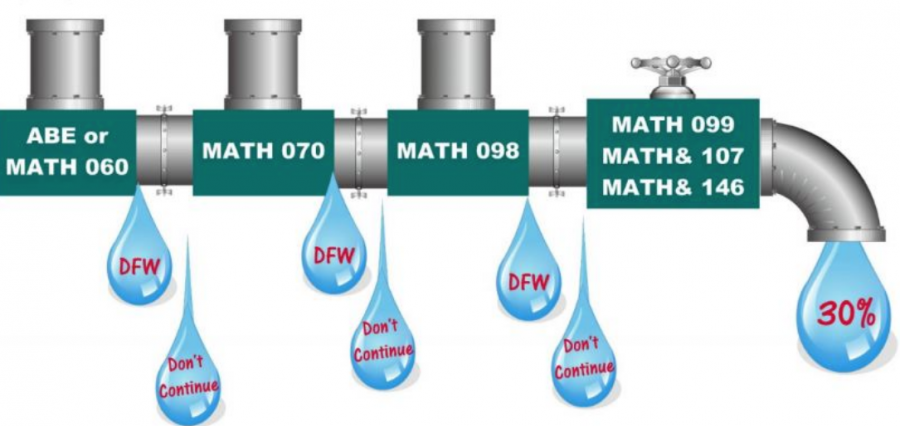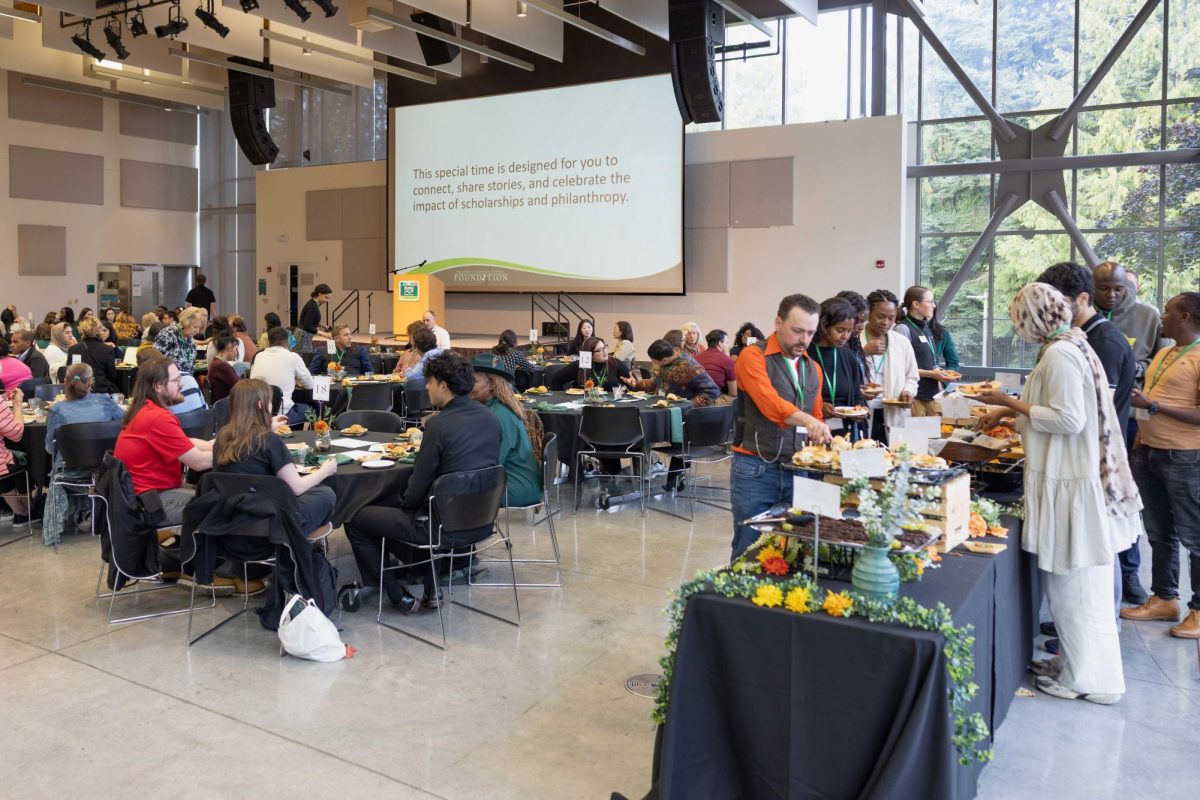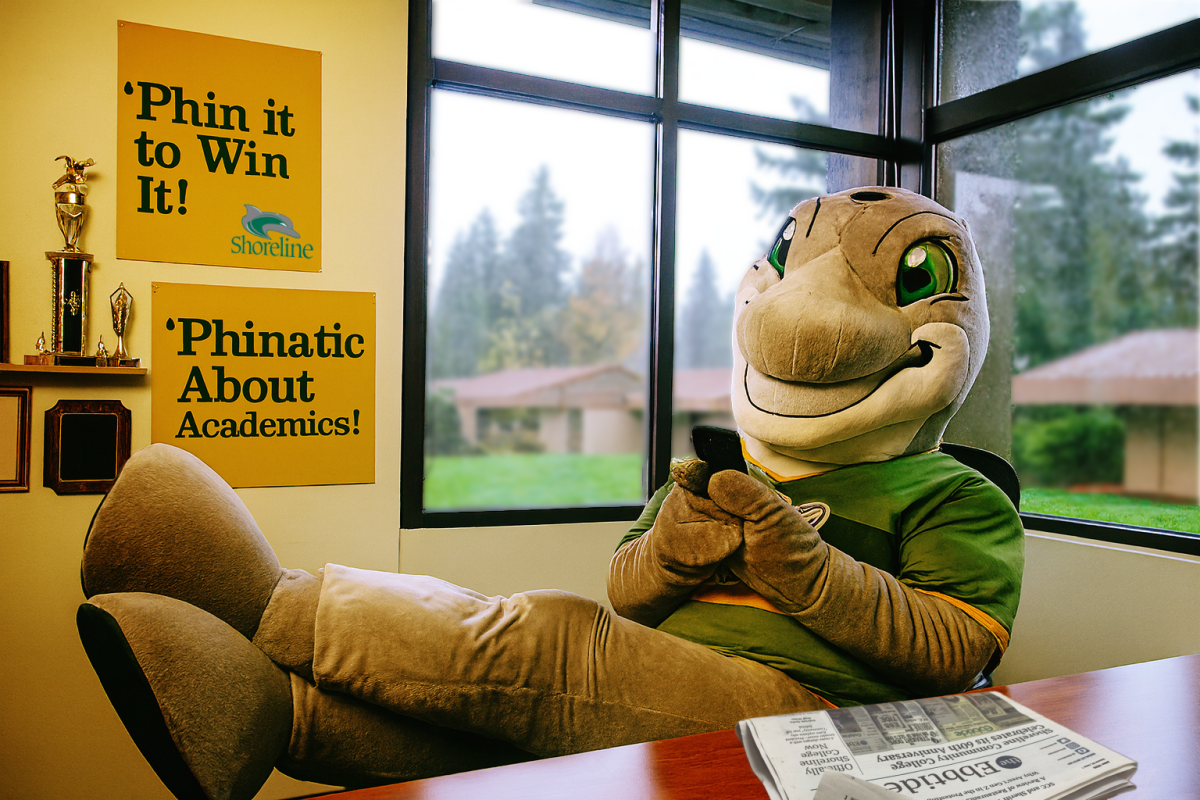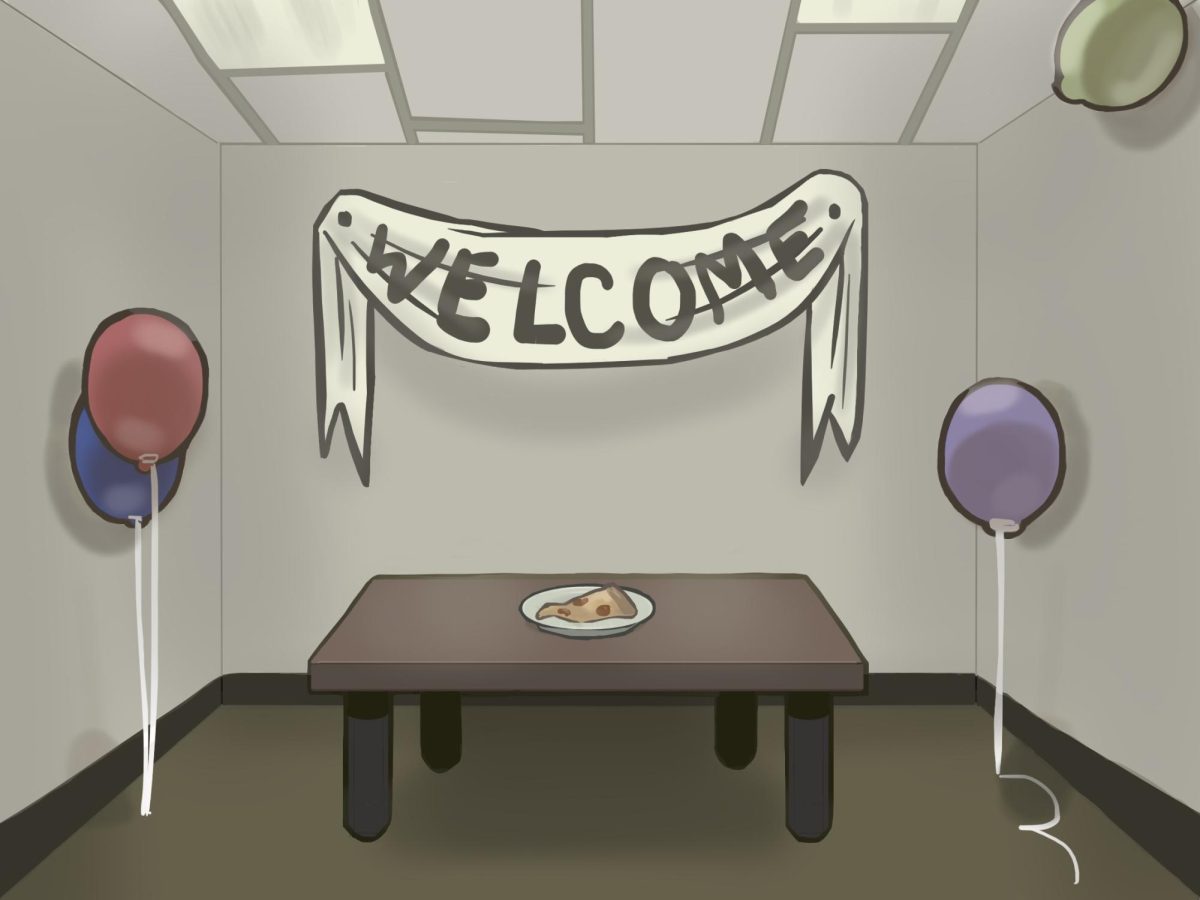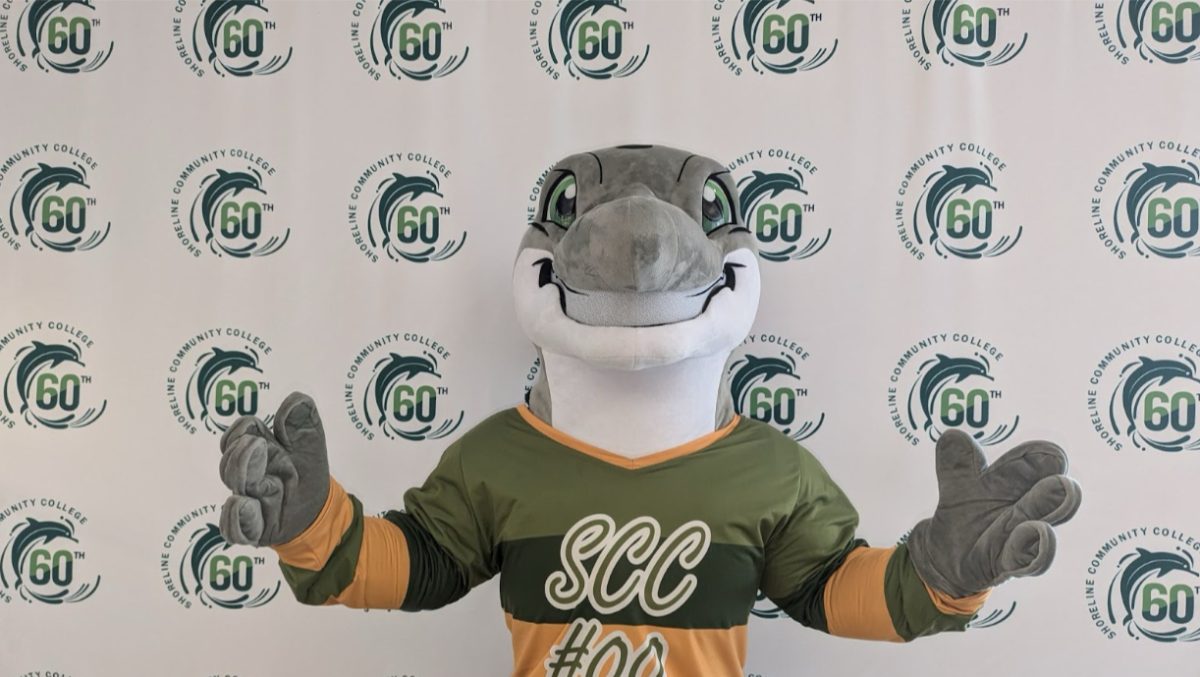SCC COSIGNS NEW MATH PROGRAM
SCC is planning on cutting out prerequisite math programs with hopes of improving student success.
“Corequisites” is the name of the new program and is currently in its feedback and planning phase. The changes will be implemented as soon as fall quarter 2019.

The idea behind the transition is to remove the prerequisite courses Math 60, 70 and 98 and integrate them into Math 107 (math in society), 146 (stats) and 99 (Intermediate Algebra 2).
Those who test into lower math will be enrolled in the higher math classes as well as a “support” course.
Why This Change is Happening
80 percent of students assessed as needing remedial math courses never finish,
according to a 2016 report by the American Education Research Association. Shana Calaway, who is leader in this project and a math professor at SCC, says that our regular developmental sequence is too long and a number of professors observe anxiety from students in the string of classes SCC is asking them to take right now.
Calaway explains that they lose a lot of students because even if they pass the first class, they don’t sign up for the second one. “The more classes you stick in front of someone, the harder it is for them to get through,” she says.
Only 30 percent of students that start in remedial courses at SCC stay long enough to enter into transfer courses. “That’s a really low number and we wanted to fix it,” Calaway says.
Other states such as California and Tennessee have implemented this program and have been seeing huge improvements, such as a 20-30 percent increase in math completion which has spread the idea across the country.
Math Professor John Guo teaches developmental mathematics at SCC. Developmental mathematics is a set pre-algebra courses for students who are starting from scratch, or international students juggling a new language and math at the same time. “It’s nice to get a full picture of mathematics,” he says, “but I think that’s not entirely necessary.”
He also says that many of his friends back in college would be frustrated at the amount of math they had to take to move on in something like theater or other arts. According to Guo, this new system is more appropriate than the old one for students who need math prerequisites but don’t plan on going further in that field.
What The Changes Will Look Like
The implementation will be starting slowly: The first class offered with corequisites will be math 146 in the fall of 2019, followed by Math 107 in the winter and finally Math 99 in the spring. Calaway says putting together Math 98 and Math 99 is the trickiest part. “The new (Math) 99 … will be the best of both 98 and 99 but it will still just be one five-credit class,” she says.
Professors and administration are still discussing the most important parts of both classes in order to merge them properly. The priority is making sure that students get the algebra they need in the moment, rather than things they may never use, or be taught again down the road.
When students start stats, math in society or Algebra 2, they will likely be in a mixed class of some students taking the corequisite version and some that aren’t.
The only difference between these student’s experiences will be the three-credit extra support class that corequisite students attend.
Just In Time Support
The “just in time support” occurs three days a week and is a support class that will include student activities and homework help. The course will address three main needs: actual math content needed to succeed in the specific class, student skills such as management of time, anxiety and campus resources, and finally the intermediate algebra required by the Direct Transfer Agreement.
“If they are learning about slope in their stats class and they don’t remember about equations of lines,” Calaway says, “that’s happening in the support class.” This will allow them to split up the course load without overwhelming anyone who may be rusty or new to math.
It will operate similarly to a built in study group. Calaway says that hopefully this will relieve any anxieties without giving extra work to the students.
An email was sent out to the campus at the beginning of the quarter addressing the proposed math course changes that read: “We need everyone on campus to think about how this new structure might affect their students and let our committee know. We can’t provide what they need if you don’t tell us!”
They may be implementing student feedback in the future.


